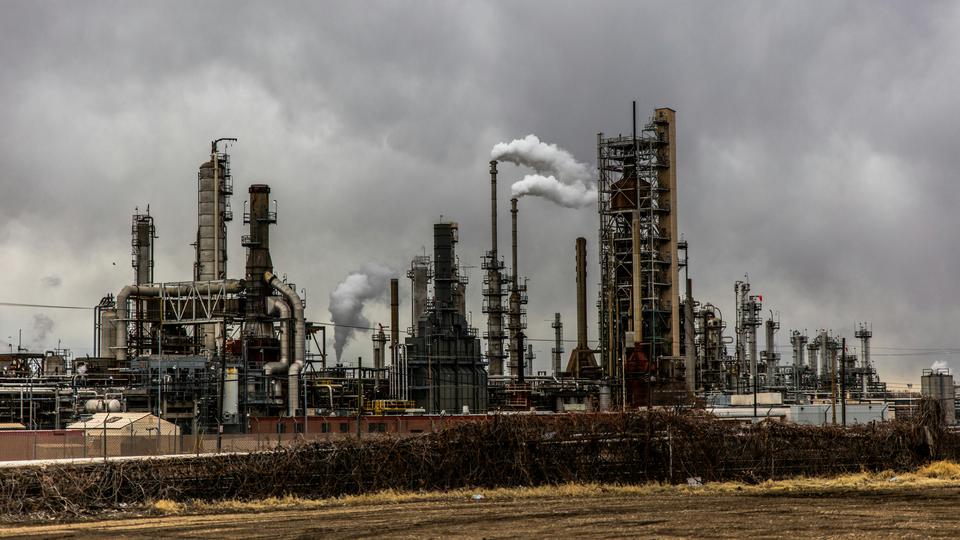
Sustainable development is profitable in Arctic Council countries
Investments in technology and measures to reduce emissions of air pollutants and the use of fossil fuels are socio-economically profitable, according to an analysis of the Arctic Council countries conducted by IVL researchers.
Arctic Council member states – the United States, Canada, Russia and the Nordic countries – account for 30 per cent of the world's fossil fuel production and 20 per cent of global energy-related climate emissions.
"The socio-economic benefits of a strong transition in these countries are enormous, and by far outweigh the costs”, says Pontus Roldin, researcher at IVL Swedish Environmental Research Institute.
Pontus Roldin is a co-author of a study that analysed the costs and benefits of introducing comprehensive measures to reduce emissions of air pollutants and short-lived climate pollutants. The researchers also analysed a more ambitious scenario that includes a reduced use of fossil fuels (coal, oil and gas) in line with the two-degree target.
Of the impacts that can be quantified, the economic benefits are mostly in the form of limited costs for illnesses and deaths related to air pollution and heat waves, and for agricultural damage caused by climate change.
"It's worth noting that there is a strong correlation between global climate change and mortality, especially linked to heat stress”, Roldin says.
Climate emissions cost €1400 billion per year
From a purely economic climate-change perspective, the analysis shows that in a single year, emissions from the Arctic Council countries cost society €1,400 billion, equivalent to 5 per cent of their combined GDP. The cost of the impact of air pollution on human health is estimated at around €700 billion per year.
"But the costs of transition are also enormous, and those who have to pay, such as energy producers and industries, need stronger incentives than they have today. Instruments such as expanded emissions trading or carbon dioxide tariffs are one way forward", says analysis co-author Jenny von Bahr, researcher at IVL Swedish Environmental Research Institute.
The study is part of the EU-funded research programme ABC-iCAP – Arctic Black Carbon impacting Climate and Air Pollution. However, the socio-economic analysis shows that black carbon is much less important for global climate change than the greenhouse gases carbon dioxide and methane.
Plans to increase oil and gas production
"Specific measures to reduce black carbon emissions are still important, especially in the Arctic environment, but it's inevitably the production and use of fossil fuels that must be reduced rapidly”, says Roldin.
"Technical measures to reduce emissions of black carbon and methane must not become an excuse for not reducing carbon dioxide emissions. As of now, several Arctic countries can't really make ends meet. Canada and the United States, for example, plan for an increasing oil and gas production, while at the recent COP28 climate summit they also promised to reduce emissions in line with the Paris Agreement."
Read more in the policy brief Socio-Economic Analysis of Air Pollution and Climate Forcer Emission Reductions in the Arctic Council Member States. External link, opens in new window.
External link, opens in new window.
The full study will be published later this spring.
Read more about the ABC-iCAP project
For more information, contact:
Pontus Roldin, tel. +46 (0)10-788 67 32
Socio-Economic Analysis of Air Pollution and Climate Forcer Emission Reductions in the Arctic Council Member States
- The study examines the socio-economic impacts of morbidity and premature death caused by air pollution, and how climate change causes agricultural damage, sea level rise, changes in energy consumption to cool or heat buildings, and mortality linked to heat stress.
- Implementing the most ambitious scenario in the analysis would reduce premature deaths by between 60,000 and 130,000 cases per year in the Arctic Council countries in 2030, and by between 80,000 and 180,000 cases in 2050, compared to continuing with current legislative measures.
- The same scenario would also reduce the global temperature increase caused by Arctic Council countries' emissions in 2050 by around 50 per cent.
- Every methodological step leading to the final socio-economic results is fraught with uncertainties. The analysis likely underestimates the full climate and health impacts. Nevertheless, the study shows that investing in measures to reduce air pollution and climate change is socio-economically beneficial.
